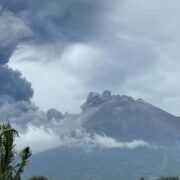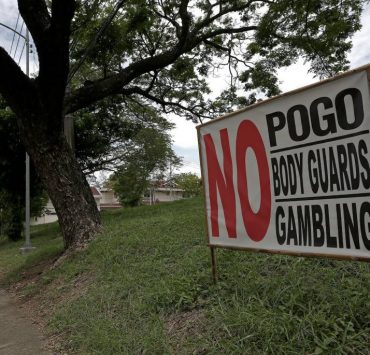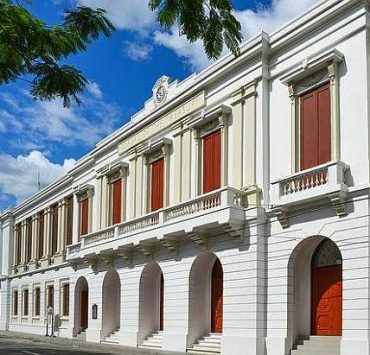Investors dump property stocks on new Marcos policy

While investors seem to be rushing to shed their property stocks after President Marcos’ sweeping order to ban Philippine offshore gaming operators (Pogo) in the country, most real estate firms may not be hurt for long, according to analysts.
Property firms were in the red on Tuesday, shedding 1.62 percent, as several index heavyweights such as Ayala Land Inc. (ALI) and SM Prime Holdings Inc. declined.
However, experts said this may only be a “knee-jerk reaction” to Mr. Marcos’ third State of the Nation Address (Sona), during which he ordered the Philippine Amusement and Gaming Corp. (Pagcor) to act on his order banning Pogos, whose presence in the country steadily increased during former President Rodrigo Duterte’s term.
“Long-term, we think that [the ban] won’t have a large effect, as majority of the developers have already started shifting to cater BPOs (business process outsourcing) for their office segment,” Jose Antonio Cipres, research analyst at AP Securities Inc., said in a Viber message.
On to 6,800
The local bourse looked unaffected by the declines in the property sector as it resumed its march toward 6,800.
The benchmark Philippine Stock Exchange Index (PSEi) gained 0.61 percent, or 41.07 points, to close at 6,753.12.
Likewise, the broader All Shares Index climbed by 1.07 percent, or 38.50 points, to 3,638.48.
ALI, whose Pogo exposure is less than 5 percent, was the top-traded stock as it dipped by 0.94 percent to P31.60. Notably, SM Prime, which no longer has Pogos exposure, also dropped by 2.45 percent to P29.90.
Claire Alviar, research analyst at Philstocks Financial Inc., pointed out that most property firms had minimal exposure to Pogos. As a result, the ban’s impact on revenues “could be minimal to insignificant for some; they could also offset or cover this through their other businesses.”
COL Financial data show that Megaworld Corp., Robinsons Land Corp., Filinvest Land Inc. and RL Commercial REIT all have less than 5-percent exposure, as Pogo presence has “significantly decreased since its peak in 2019.”
But if there was a company that may be significantly impacted by the ban, Cipres said this would be DDMP REIT Inc. (DDMPR), the real estate investment trust arm of developer DoubleDragon Corp.
Pogos and Pagcor-accredited BPOs accounted for 51 percent of DDMPR’s P1.81-billion rental income last year.
DDMPR’s shares dipped by 5.17 percent to P1.10 each on Tuesday as investors priced in the anticipated negative impact of the President’s order.
At the same time, COL Financial analyst Richard Laneda noted that Pogos’ exit would also result in higher vacancy rates across the office segment.
Data from real estate brokerage firm Leechiu Property Consultants show that Pogos accounted for 75,000 square meters of leased office space in the first half of the year. This is down from 88,000 sq m last year.
Leechiu also said in its first-semester property report that lease terminations during the period eased due to the “absence of contractions caused by the Pogo industry.”
The vacancies caused by the ban will likewise add to the 786,000 sq m of office space that will be added to the market supply by the second half of the year.
According to Cipres, there may also be an uptick in residential vacancies, particularly in the Bay Area, as Pogo workers start to leave.
“While the effect is mostly isolated, this may temper the current uptrend that we are seeing in the index, most especially given the fact that the property sector is what we are expecting to spearhead the index’s run-up moving forward,” he said.
Analysts earlier projected property firms to help lift the local bourse, especially with the anticipated interest rate cuts that could mean better borrowing terms for prospective buyers. —WITH A REPORT FROM CZASHAINE MAI T. ABELLA

















